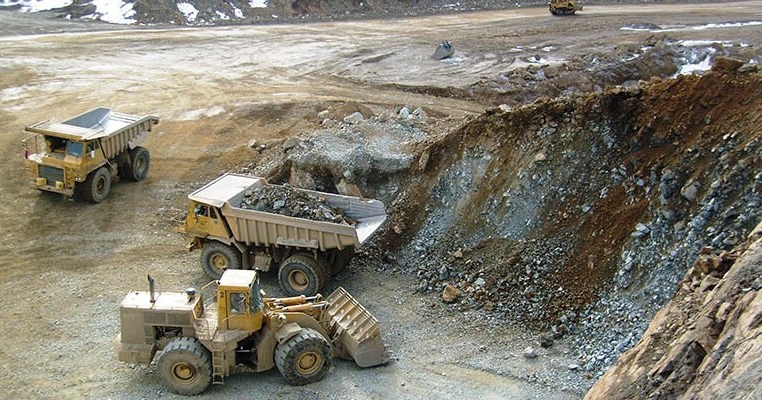Copper is crucial for the transition to electrical autos, however a examine from professors on the College of Michigan and Cornell College expresses doubt that sufficient could be discovered to fill the demand, and suggests mass adoption of hybrids might be a more practical various.
“Copper is the mineral most basic to the human future as a result of it’s important to electrical energy technology, distribution, and storage. Copper availability and demand decide the speed of electrification, which is the muse of present local weather coverage,” in response to the examine, which was sponsored by the Worldwide Vitality Discussion board.
The Discussion board is the world’s largest worldwide group of power ministers from 70 international locations and contains each producing and consuming nations. It has a broad mandate to look at all power points, together with oil and gasoline, clear and renewable power, sustainability, power transitions and new applied sciences.
The examine from U-M and Cornell, in Ithaca, NY, concludes copper can’t be mined shortly sufficient to maintain up with present U.S. coverage tips to transition the nation’s electrical and automobile infrastructure to renewable power.
“Many research have raised considerations that copper provide can not meet the copper calls for of each the ‘inexperienced power’ transition and equitable international growth, however the common presumption persists that the copper wanted for the inexperienced transition will in some way be out there. This needn’t be the case for even step one of auto electrification,” the examine notes.
“To affect the worldwide automobile fleet requires bringing into manufacturing 55% extra new mines than would in any other case be wanted,” the examine says. “Alternatively, hybrid-electric automobile manufacture would require negligible further copper mining.”
The European Union expects to ban autos with internal-combustion engines by 2035, the identical yr the state of California expects to finish gross sales of ICE autos.
To satisfy the copper wants of electrifying the worldwide automobile fleet, as many as six giant new copper mines should be introduced on-line yearly over the subsequent a number of a long time. About 40% of the manufacturing from new mines will likely be required for electrical vehicle-related grid upgrades, the examine says.
The U.S. Inflation Discount Act requires 100% of vehicles manufactured to be electrified by 2035 (https://www.sustainability.gov/federalsustainabilityplan/fleet.html). The European Union additionally is looking for electrical autos by 2035 and in China, the world’s largest marketplace for new autos, greater than 1 / 4 of recent autos offered are EVs.
However an EV requires three to 5 occasions as a lot copper as an ICE automobile – to not point out the copper required for upgrades to the electrical grid (see graphic, beneath).
“A traditional Honda Accord wants about 40 kilos (18 kg) of copper. The identical battery-electric Honda Accord wants nearly 200 kilos (91 kg) of copper. Onshore wind generators require about 10 tons (9,072 kg) of copper, and in offshore wind generators, that quantity can greater than double,” in response to Adam Simon, U-M professor of earth and environmental research.
Says Simon, “We present within the paper that the quantity of copper wanted is basically inconceivable for mining corporations to provide.”
The examine focuses on 120 years of worldwide information from copper mining corporations and calculated how a lot copper the U.S. electrical energy infrastructure and fleet of vehicles would wish to improve to renewable power. It discovered that renewable power’s copper wants would outstrip what copper mines can produce on the present price.
Copper is mined by 100 totally different corporations on six continents, and the typical time between discovering a brand new copper mineral deposit and getting a allow to construct a mine is about 20 years, in response to Simon.
The researchers discovered that between 2018 and 2050, the world might want to mine 115% extra copper than has been mined in all human historical past up till 2018 simply to fulfill “enterprise as normal.” This might meet present copper wants and assist the creating world with out contemplating the “inexperienced power” transition.
“I’m an enormous fan of the Inflation Discount Act. It’s unbelievable. I’ve obtained photo voltaic panels, batteries and an electrical automobile,” Simon says. “I’m totally on board with the power transition. Nevertheless, it must be accomplished in a approach that’s achievable.”
As an alternative of totally electrifying the U.S. fleet of autos, the researchers recommend specializing in manufacturing hybrid autos.
“We all know, for instance, {that a} Toyota Prius has a barely higher affect on local weather than a Tesla. As an alternative of manufacturing 20 million electrical autos in the US and globally, 100 million battery electrical autos annually, wouldn’t it be extra possible to give attention to constructing 20 million hybrid autos?”
The researchers say creating international locations want extra copper infrastructure, similar to constructing {an electrical} grid for the roughly 1 billion individuals who don’t but have entry to electrical energy or the roughly 2 billion individuals who shouldn’t have entry to wash water or the 4 billion individuals who shouldn’t have entry to sanitation amenities.
“Renewable power applied sciences, clear water, wastewater, electrical energy – it can not exist with out copper. So, we then find yourself with stress between how a lot copper we have to construct infrastructure in less-developed international locations versus how a lot copper we’d like for the power transition,” Simon says.
“We expect our examine highlights that important progress could be made to cut back emissions in the US,” he says. “Nevertheless, the present – nearly singular – emphasis on downstream manufacture of renewable power applied sciences can’t be met by upstream mine manufacturing of copper and different metals with out a full mindset change about mining amongst environmental teams and policymakers.”
